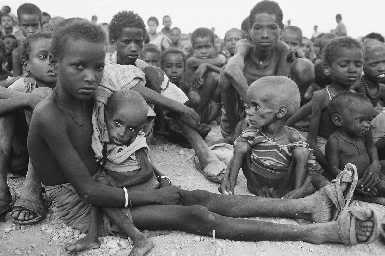
Stakeholders in rice and wheat production in some of the North Eastern states have urged government at all levels to give adequate support to farmers to enable them boost their production.
They said in separate interviews that rice and wheat farmers in the country had the potential to feed the country and export same if given the necessary support.
Malam Aminu Maiwada, a rice farmer in Gashua town of Yobe, said that most states in the country had areas that were suitable for rice production.
“In Yobe State, the Gashua/ Nguru wetlands, Nyakire lowlands, Ngalda plains and Godowoli valley had huge potential for irrigation rice farming that could produce rice to meet the needs of five other states.
“The wetlands are mostly flooded during the rainy season but dry up and become very conducive for irrigation,” he said.
Salisu Ibrahim, who said rice farming had been their family business, attributed poor processing as the reason why Nigerians preferred foreign rice.
Hajiya Hauwa Usman, a food vendor in Damaturu, said Nigerians now patronise local rice because of its natural taste.
The chairman of Rice Farmers Association of Nigeria (RIFAN) in Minari, Dutse Local Government Area of Jigawa, Alhaji Saminu Garba, urged government to support farmers to boost their production.
According to him, with adequate support from the Federal and State governments, farmers in the country have the capacity to ensure mass production of rice, wheat and sorghum.
He said that the support could be rendered by way of providing improved seeds, fertiliser and insecticides as part of intervention activities to farmers.
Also speaking, the National Vice Chairman of All Farmers Association of Nigeria (AFAN), Alhaji Maiungwa Jaga, appealed to the states and Federal Government to assist rice farmers with soft loans.
In Bauchi State, about 150 farm families had cultivated over 150 hectares of wheat under the Federal Government Wheat Value Chain Programme.
Alhaji Mohammed Yusuf, Director, Federal Ministry for Agriculture in the state, said that the programme was introduced by the Federal Government through its Lake Chad Research Institute, to boost wheat production.
He named Bauchi, Kano, Katsina and Kebbi as the states selected for the programme.
“Gadau, Waya Dam, Gwalaga, Bayera, Konkiyel, Touya, Misau, Warji, Jama’are, Itas Gadau, Zaki, Gamawa and Shira are towns and villages participating in Bauchi State.
“Farmers were supported with 250kg of seed, herbicides, 80 units of water pumps, 150 units of sprayers and 25 Multi-Purpose Threshers,” he said.
According to him, some of the farmers have started harvesting their crops since February.
The director said that over 600 metric tons of the produce was being expected at the end of the harvest considering the high yield per hectares being recorded.
Dr Illiyasu Gital, Programme Manager, Bauchi State Agricultural Programme (BSADP), said the wheat programme was targeted at most of the northern states in Nigeria.
“Unfortunately, the programme started with pilot scheme and Bauchi, known for large scale wheat production, was not included in the first year.
“We had to struggle to get the state included and by the time we succeeded, it was late and only few of our farmers produced wheat.
“We were able to cultivate 3,000 hectares of land and about 1,200 farmers participated in the programme,” he said.
Dr Yahaya Adamu, Chairman, Bauchi State chapter of Rice Farmers Association of Nigeria (RIFAN), commended the Federal Government’s dry season inputs support programme, saying about 11,000 dry season rice farmers were registered in the state.
The chairman noted that with the GES scheme, the Federal Government’s Agricultural Transformation Agenda (ATA) had solved farmers’ problem of accessing quality and affordable farm inputs, a situation that had hampered farmers’ productivity in the past.
He also commended the GES implementation team in Bauchi for ensuring that all the inputs allocated got to the 11,000 registered dry season rice farmers in the state.
Meanwhile, Alhaji Ahmed Ashemi, the Sole Administrator of Borno Chambers of Commerce, Industries, Mine and Agriculture, has said that activities of insurgents had crippled all agricultural and commercial activities in the state.
Ashemi said in Maiduguri that the state had lost its position as the second largest commercial city in the North since 2009.
He said that a huge agricultural project worth billions of naira embarked on by the Lake Chad Basin Development Authority to boost farming in the state, had to be abandoned and later destroyed by insurgents.
“There is a great potential in agriculture in Borno; we have the land and human resources to contribute to the efforts toward ensuring food sufficiency in the country but the security challenges remained a major obstacle,” he said.
Adamawa Commissioner for Agriculture, Mr Ahmadu Waziri, said the state government had held a stakeholders’ meeting to work out a blue-print that would take the state agriculture to the next level.
He observed that the challenges of food security had been exacerbated by the many years of insurgency in the state and North East sub-region.
Waziri said that access to production resources such as capital, mechanical power and improved seedlings and technologies were some of the major challenges facing farmers.
He said that the current administration has concluded arrangement to import farm machinery while discussions were ongoing with some organisations that would help with value chain addition through enhancing production and processing.
He said that the state government has also taken measures to enable farmers benefit from the Central Bank of Nigeria (CBN) Anchor Borrowers programme.
SOURCE: Todayng


